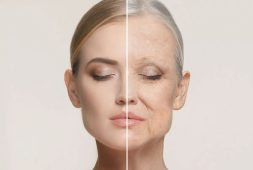
There are quite a large number of citizens that listen to unreliable health-related falsities, which is often a reason why they don’t get the proper medical care they need. In fact, a survey that was conducted found that a portion of the population that falls under those with lower education and income brackets – as well as a skepticism of health systems or those that prefer to use alternative medicine – tend to believe false information.
A large reason why this is an issue is due to the fact that social media sites tend to share misinformation on health-related matters. Although social media sites work positively in keeping in touch with friends, family, and even for work, as well as using it as a platform to share ideas and the like, it can also be a place where people share false information, including health info. But when the data is wrong, this can lead to people making bad health decisions as a result.
Health misinformation is a phrase that actually refers to ‘any health-related claim under the assumption of truth is false based on current scientific consensus.’ And the term has also gained major momentum due to netizens becoming incredibly active on social media sites like Facebook and Twitter.
Notably, the amount of health misinformation that is posted on various social media sites has been growing rapidly in recent years. In a systemic review that examined 69 different studies, , they focused on social media and the prevalence of health misinformation.
During their review, investigators found that there was quite a large number of incorrect health misinformation when it came to health content about drugs, smoking products, and even public health issues dealing with diseases and vaccines. Notably, the pervasiveness of such misinformation was highest on Twitter than on any other social media site.
Digging Deeper For Answers
The researchers at the University of Colorado School of Medicine in Aurora, alongside scientists from the University of Regina in Canada, and even the Massachusetts Institute of Technology in Cambridge all probed the issue further.
A number of health professionals have become quite concerned about the developing issues surrounding health misinformation and how this could make people refuse to move forward with real and true healthcare. The research team also worked to figure out which group of people was the most susceptible to trusting these mistruths.
In order to figure this out, the research group surveyed a total of 1,020 individuals between the ages of 40 and 80 within the United States. The released their findings in the journal Health Psychology.
During the survey, participants were asked to rate what they believed was the truth in current Twitter and Facebook posts. The posts they saw had both true and false information about cancer treatments, statins medications, and human papillomavirus (HPV) vaccines.
Some of the misinformation that participants read talked about where that HPV vaccines are dangerous; that red yeast happens to be just as effective as statins when it comes to lowering cholesterol; and that marijuana, dandelion roots, and ginger can cure cancer.
The participants were then asked to evaluate the information on the posts as completely false, mostly false, mostly true, or completely true. The research team then followed this up by asking them questions in relation to their education level, age, income, their interest in alternative medicine, and their health knowledge.
Who Believes False Health Information?
Once they completed the data, the researchers found that those with lower education levels, as well as less knowledge of healthcare issues, were the ones more likely to believe the health misinformation they read over the other study participants.
Those that had distrust of the healthcare system, as well as those that prefer alternative treatments, were also more likely to trust any health-related misinformation.
In addition, the study participants that also believed in the false claims of one topic were more likely to believe the health misinformation given about other health topics on social media.
The study’s lead author, Laura D. Scherer, Ph.D. from the University of Colorado School of medicine, explained the repercussions of such findings below.
She said, “Inaccurate information is a barrier to good healthcare because it can discourage people from taking preventive measures to head off illness and make them hesitant to seek care when they get sick. Identifying who is most susceptible to misinformation might lend considerable insight into how such information spreads and provide us with new avenues for intervention.”
Is Distrust in Healthcare Another Driving Factor?
The results from a survey conducted between 2017 to 2018 within the United States showed that there was ‘a 20% reduction of general trust in healthcare among the informed public.’ And not just in the United States, but it found that the trust in healthcare worldwide had dropped by as much as 4%.
Patrice A. Harris, M.D., M.A., president of the American Medical Association explained in a national address just last year, “We have witnessed a concerning shift over the last several decades where policy decisions seem to be driven by ideology and politics instead of facts and evidence. The result is a growing mistrust in American institutions – in science – and in the counsel of leading experts who dedicate their lives to the pursuit of evidence and reason.”
Dr. Harris suggests that in order to fight the belief in misinformation – which is due to fear or trust – the healthcare community and the public need to look for and share the right information from only credible sources online.
How Researchers Hope to Overcome the Problem of Health Misinformation
While more research is needed in order to learn how to intervene with the ongoing issue of health misinformation, Dr. Scherer iterates, “We hope that research can build on these findings and develop novel and evidence-based interventions to reduce the influence and spread of health misinformation online. Such steps could save countless lives.”
So the next time you find yourself online searching for information on health topics, issues and possible solutions, remember to double check the website you are using to search, as well as make sure it uses credible sources. But more importantly, always seek the help of proper medical professionals rather than trusting whatever you read on the internet.



